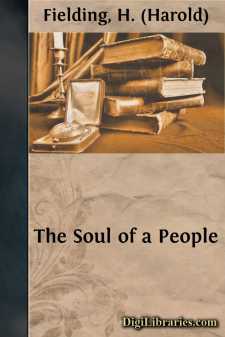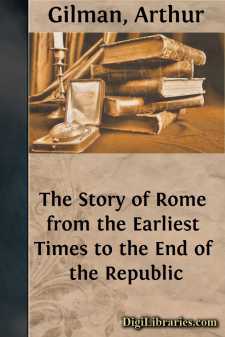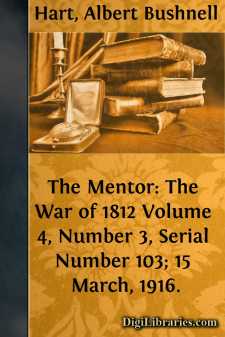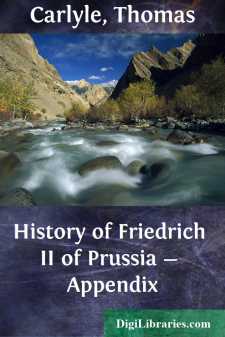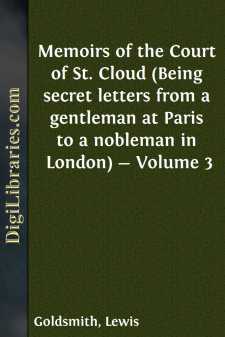History
- Africa 30
- Americas (North Central South West Indies) 50
- Ancient 68
- Asia 58
- Australia & New Zealand 8
- Canada 41
- Caribbean & West Indies 1
- Civilization 20
- Eastern Europe 12
- Europe 310
- Expeditions & Discoveries 60
- General 77
- Historical Geography 1
- Jewish 9
- Latin America 3
- Medieval 8
- Middle East 13
- Military 248
- Revolutionary 8
- Study & Teaching 5
- United States 353
- Western Europe 56
- World 13
History Books
Sort by:
INTRODUCTORY. "If humour only meant laughter," said Thackeray, in his essay on the English humorists, "you would scarcely feel more interest about humorous writers than the life of poor Harlequin, who possesses with these the power of making you laugh. But the men regarding whose lives and stories you have curiosity and sympathy appeal to a great number of our other faculties, besides our...
more...
by:
Richard Hakluyt
Thirty-five years ago I made a voyage to the Arctic Seas in what Chaucer calls A little boteNo bigger than a mannë’s thought; it was a Phantom Ship that made some voyages to different parts of the world which were recorded in early numbers of Charles Dickens’s “Household Words.” As preface to Richard Hakluyt’s records of the first endeavour of our bold Elizabethan mariners to find...
more...
by:
William Andrews
THE BARBER'S POLE n most instances the old signs which indicated the callings of shopkeepers have been swept away. Indeed, the three brass balls of the pawn-broker and the pole of the barber are all that are left of signs of the olden time. Round the barber's pole gather much curious fact and fiction. So many suggestions have been put forth as to its origin and meaning that the student of...
more...
CHAPTER I LIVING BELIEFS 'The observance of the law alone entitles to the right of belonging to my religion.'—Saying of the Buddha. For the first few years of my stay in Burma my life was so full of excitement that I had little care or time for any thought but of to-day. There was, first of all, my few months in Upper Burma in the King's time before the war, months which were full of...
more...
by:
Cassius Dio
BOOK 78, BOISSEVAIN.) [Sidenote: A.D. 211 (a.u. 964)] [Sidenote:—1—] After this Antoninus secured the entire power. Nominally he ruled with his brother, but in reality alone and at once. With the enemy he came to terms, withdrew from their country, and abandoned the forts. But his own people he either dismissed (as Papinianus the prefect) or else killed (as Euodus, his nurse, Castor, and his wife...
more...
by:
Arthur Gilman
ONCE UPON A TIME. Once upon a time, there lived in a city of Asia Minor, not far from Mount Ida, as old Homer tells us in his grand and beautiful poem, a king who had fifty sons and many daughters. How large his family was, indeed, we cannot say, for the storytellers of the olden time were not very careful to set down the actual and exact truth, their chief object being to give the people something to...
more...
Our defeat of Great Britain in the Revolutionary War was conclusive; though "we" in that case included France, without whose aid the patriots must have been defeated. It is not so easy to discover a fund of military glory in the War of 1812. That was a great war year. Within a few days of the declaration of war by the United States against Great Britain, Napoleon's Grand Army of over...
more...
by:
Various
I GENERAL SURVEY F.S. MARVIN We are trying in this book to give some impression of the principal changes and developments of Western thought in what might roughly be called 'the last generation', though this limit of time has been, as it must be, treated liberally. From the political point of view the two most impressive milestones, events which will always mark for the consciousness of the...
more...
by:
Thomas Carlyle
A DAY WITH FRIEDRICH.—(23d July, 1779.) "OBERAMTMANN (Head-Manager) Fromme" was a sister's son of Poet, Gleim,—Gleim Canon of Halberstadt, who wrote Prussian "grenadier-songs" in, or in reference to, the Seven-Years War, songs still printed, but worth little; who begged once, after Friedrich's death, an OLD HAT of his, and took it with him to Halberstadt (where I hope it...
more...
by:
Lewis Goldsmith
PARIS, August, 1805. MY LORD:—No Sovereigns have, since the Revolution, displayed more grandeur of soul, and evinced more firmness of character, than the present King and Queen of Naples. Encompassed by a revolutionary volcano more dangerous than the physical one, though disturbed at home and defeated abroad, they have neither been disgraced nor dishonoured. They have, indeed, with all other Italian...
more...





